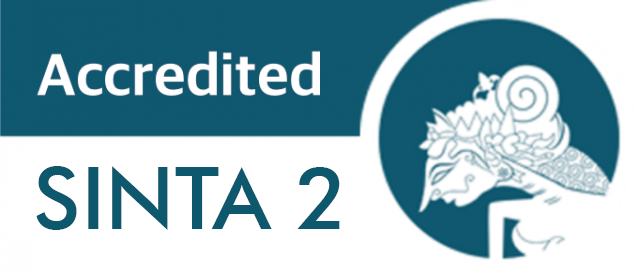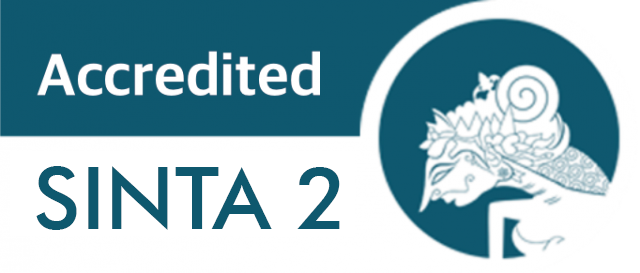Efek Probiotik Terhadap Interleukin-6 Serum dan Skor Depresi pada Pasien Luka Bakar
Downloads
Latar Belakang: Luka bakarmerupakan respon lokal suatu jaringan dengan atau tanpa respon sistemik terhadap suatu perpindahan energi dari sumber fisik atau kimia. Perawatan luka bakar memerlukan waktu yang lama. Dampak pada individu karena luka bakar dirasakan sejak awal cedera dan meluas di seluruh kehidupan seseorang. Pada luka bakar tejadi pelepasan mediator inflamasi khususnya interleukin-6 dan terganggunya berbagai faal tubuh, salah satunya homeostasis mikrobiota usus. Komorbiditas psikiatrik yang terjadi berkisar 45,5 %, dimana depresi yang hadir akan memperberat kondisi pasien. Probiotik dapat menurunkan kadar interleukin-6 dan mencegah gejala depresi secara langsung maupun tidak langsung. Studi ini untuk menilai efek suplementasi probiotik pada gejala depresi, parameter menggunakan biomarker IL-6 serum.
Tujuan: Membuktikan efek probiotik terhadap interleukin-6 serum dan skor depresi pada pasien luka bakar.
Metode: Desain penelitian adalah non randomized control trial. Sampel diambil dengan consequtive sampling. Pemberian probiotik pada hari ke 4 sampai hari ke 19 perawatan, kadar interleukin-6 serum diukur pada hari ke-4 (sebelum pemberian probiotik) dan hari ke 19 (setelah pemberian probiotik) dengan ELISA. Kelompok kontrol tidak menerima probiotik. Kriteria depresi diukur dengan Hamilton Depression Rating Scale (HDRS). Kedua alat ukur tersebut telah melalui uji validitas dan reliabilitasnya dari penelitian sebelumnya dan HDRS telah diadaptasi ke dalam bahasa Indonesia. Analisis data menggunakan uji komparatif.
Hasil: Hasil uji statistik menunjukkan tidak ada perbedaan yang bermakna antara kelompok perlakuan dan kontrol.
Kesimpulan: Pemberian probiotik tidak berpengaruh terhadap kadar interleukin-6 serum dan derajat depresi dibandingkan kontrol.
Alvi, T., Assad, F., Aurangzeb, Malik, N., 2009. Anxiety and Depression In Burn Patients.J Ayub Med Coll Abbottabad 21(1)
Argenta, A, Satish, L, Gallo, P, et al, 2016. Local Application of Probiotic Bacteria Prophylaxes against Sepsis and Death Resulting from Burn Wound Infection. PLOS ONE | DOI:10.1371/journal.pone.0165294
Benton, D., Williams, C., Brown, A., 2007. Impact of consuming a milk drink containing a probiotic on mood and cognition. Eur J Clin Nutr, 61(3):355-61
Bob, P., Raboch, P., Maes, M., 2010. Depression, traumatic stress and interleukin-6. Journal of Affective Disorders 120: 231–234
Chapman, C.M., Gibson, G.R., Rowland, I., 2011. Health benefits of probiotics: are mixtures more effective than single strains?. Eur. J. Nutr., 50, pp. 1–17 http://dx.doi.org/10.1007/s00394-010-0166-z
Cryan, J.F., O'Mahony, S.M., 2011. The microbiome-gut-brain axis: from bowel to behavior. Neurogastroenterol Motil 23: 187–192.
Dinan, T. & Cryan, J., 2013. Melancholic microbes: a link between gut microbiota and depression?.Neurogastroenterol Motil25, 713–719
Earley, Z., Akhtar, S., Green, S., et al, 2015. Burn Injury Alters the Intestinal Microbiome and Increases Gut Permeability and Bacterial Translocation, Plos one 1
Frota, P., Zanini, D., 2013. Coping, Personality Traits and Social Support in Severe Burn Survivors. Psychology Vol.4, No.12, 1059-1063
Gun, F, Salman, T, Gurler, N, Olgac, F, 2005. Effect of Probiotic Supplementation on Bacterial Translocation in Thermal Injury. Surg Today 35:760–764
Huang, R., Wang, K., Hu, J., 2016. Effect of Probiotics on Depression: A Systematic Review and Meta-Analysis of Randomized Controlled Trials. Nutrients 8, 483; doi:10.3390/nu8080483
Koren, L., Gurfinkel, R., Glezinger, R., et al, 2007. The effect of Lactobacillus bacteria supplement on sepsis and its complications in patients with acute burns. burns 33,594–598
Krabbe, K., Reichenberg, A.,Yirmiya, R., Smed, A., Pedersen, B., Bruunsgaard, H., 2005.Low-dose endotoxemia and human neuropsychological functions. Brain Behav. Immun., 19, pp. 453–460
Magnotti, L., Deitch, E., 2005. Burns, Bacterial Translocation, Gut Barrier Function, and Failure.J Burn Care Rehabil ; 26:383–391
McCusker, R.H., Kelley, K.W., 2013. Immune–neural connections: how the immune system's response to infectious agents influences behavior. J. Exp. Biol., 216 (1), pp. 84–98
Messaoudi, M., Violle, N., Bisson, J.,et al, 2011.Beneficial psychological effects of a probiotic formulation (Lactobacillus helveticus R0052 and Bifidobacterium longum R0175) in healthy human volunteers. Gut Microbes 2:4, 256-261
Mitsunaga, J., Gragani, A., Ramos, M.L., et al, 2003. Rat an experimental model for burns: a systematic review. Acta Cir Bras;27(6), pp 23-417.
Olguin, F., Araya, M., Hirsch, S., Brunser, O., Ayala, V., Rivera, R., Gotteland, M., 2005. "Prebiotic ingestion does not improve gastrointestinal barrier function in burn patients”. Burns. 31(4): 482-8.
Pavoni, V., Gianesello, L., Paparella, L., et al, 2010. Outcome predictors and quality of life of severe burn patients admitted to intensive care unit. Scandinavian Journal of Trauma, Resuscitation and Emergency Medicine, 18:24
Pereira, G., Miguel, M., Ramos, C., Schwan, R., 2012. Microbiological and physicochemical characterization of small-scale cocoa fermentations and screening of yeast and bacteria strains for the development of a defined starter culture. Applied and Environmental Microbiology, 78, pp. 5395–5405
Rao, A., Bested, A., Beaulne, T., et al, 2009.A randomized, double-blind, placebo-controlled pilot study of a probiotic in emotional symptoms of chronic fatigue syndrome.Gut Pathogens, 1:6
Saputro et al, 2012, Five Years Retrospective Study of Burns in Dr. Soetomo General Hospital Surabaya, PIT PERAPI Medan.
Tahir, S.M.,Makhdoom, A.,Awan, S., Ali, S. A., 2014. Role of Probiotics in the Management of Burns Patients. World Journal of Medical Sciences 11 (3): 417-421
Vyas, U. and Ranganathan, N., 2012. Probiotics, Prebiotics, and Synbiotics: Gut and Beyond.Gastroenterology Research and Practice Volume 16
Wadher K.J., Mahore, J.G and Umekar, M.J, 2010. Probiotics: Living Medicines in Health Maintenance and Disease Prevention. International Journal of Pharma and Bio Sciences, Vol.1/Issue-3
Copyright (c) 2017 Nur Aida, Azimatul Karimah, Iswinarno Doso Saputro

This work is licensed under a Creative Commons Attribution-ShareAlike 4.0 International License.
1. Copyright of this journal is possession of the Author, by the knowledge of the Editorial Board and Journal Manager, while the moral right of the publication belongs to the author.
2. The journal allows the author(s) to retain publishing rights without restrictions.
3. The articles are published under a Creative Commons Attribution Share-Alike (CC BY-SA) license. Many research funding bodies prefer the CC BY-SA license because it allows for maximum dissemination and re-use of open access materials. Users are free to share (copy, distribute, and transmit) and remix (adapt) the contribution under this license, including for commercial purposes, as long as they attribute the contribution in the manner specified by the author or licensor.




























